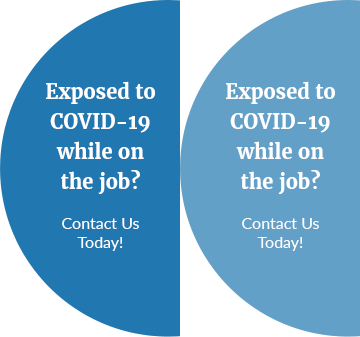Should I Give a Recorded Statement to an Insurance Company?
If you have been injured in an auto accident, you might get a call from the other drivers’ insurance company within a few days after the crash to check up on you and ask how you are doing. The insurance company representative will most likely be friendly and courteous, and they will reassure you that you will be taken care of.
Once the insurance adjuster or representative believes that they have gained your trust, they might request that you give them a recorded statement about the accident. This might seem like a routine request, and they might tell you that a statement is needed in order to process your claim.
Many people wonder if they are obligated to give the insurance company a recorded statement, and if they are not obligated, should they give them a statement. The short answer to these questions is “no” and “no”.
To the first question, you are under no obligation to provide a recorded statement to the other driver’s insurance company. There may be some confusion about this point, because you have probably been told that you must cooperate with your own insurance company, otherwise you might be denied coverage if you caused an auto accident in Pennsylvania.
All this is true, but there is a big difference between your insurance company and another driver’s insurer. When you took out auto insurance, you agreed to the terms and conditions within the policy, one of which is to cooperate with them in the event of an accident. However, you are under no contractual duty to speak with the other driver’s insurance company, and it is not recommended that you do so without first speaking to a lawyer.
Why Should I Refuse to Give a Recorded Statement to the Other Driver’s Insurer?
People give recorded statements to insurance adjusters every day, so you might be wondering why we recommend that you refuse this request without consulting an attorney first. Here are some of the reasons:
- The insurance adjuster is not looking out for your best interests. The first reason you should decline to provide a recorded statement is because of this fundamental truth; the insurance adjuster is not on your side. This does not necessarily make him/her a bad person, it is just part of their job. Their loyalty is to the company that pays their salary, and insurance company’s goal is to pay as little as possible for your claim. They might talk nicely to you on the phone, but you must remember that their interests are not aligned with yours.
- A recorded statement can only be used to harm your claim. The insurance adjuster might tell you that a recorded statement is your opportunity to tell your side of the story and give your version of events. And you might think that there is no harm in giving this to them, as long as you are honest and transparent. But what if you forget an important detail? Or what if you admit some fault even if you are not to blame because you were being overly cautious in how you characterize the events? The insurance company already has the police report and statements from any witnesses, so they have no need to record you. The recording will only be used to look for inconsistencies in your story and other reasons to diminish or deny your claim.
- Early after the accident is not a good time to go on the record. Think about this, why does the insurance company want a recorded statement right away after an accident? At this point, you are probably still a bit confused and disoriented, and there is a good chance that you do not even know the full extent of your injuries. This is the worst possible time to go on the record with definitive statements that an insurance company might use against you later on.
What to Do If You Are Asked to Give a Recorded Statement
If an insurance company representative asks you to give them a recorded statement, the best response is to politely decline and tell them that you want to speak with a lawyer first. Next, get in touch with an experienced auto accident lawyer to assess your case and find out what your legal rights and options are.
If you suffered moderate to severe injuries and/or there is a question of fault or any other complications in your case, you are probably going to want to hire an attorney to help ensure that you recover full and fair compensation. Once this is done, your attorney will deal directly with the insurance company regarding recorded statements and other legal matters.
Remember – Even if you actually were at fault for the accident, you still might be able to recover damages, as Pennsylvania follows a modified comparative negligence doctrine. Under the doctrine, you have the right to be compensated for your injuries even if you are found to be at fault for the accident – as long as your share of fault does not exceed 50%. You cannot receive any compensation if you are found to be 51% or more at fault for the accident. So, you should never tell anything to the insurance adjuster – regardless of what they assure you. Let your attorney do all the talking for you.
Every time they have any contact with you, they are trying to chip away at your claim. They are looking for ways to discredit you, downplay the severity of your injuries, and even blame the accident on you. They do this without you ever knowing. By the time you finish what seemed to be a quick chat about the accident, they have already found a dozen holes to poke in your story.
You are not obligated to talk to them. Anything you tell them could seriously harm your claim and make it even more challenging for you to receive fair compensation.
Injured in an Auto Accident in Pennsylvania? Contact Caroselli, Beachler & Coleman Now for Assistance
If you were injured in a car accident in Pittsburgh or anywhere in Pennsylvania, Caroselli, Beachler & Coleman is here to help. Before giving any statements to the other driver’s insurance company, call us at 412-567-1232 or toll-free at 866-466-5789 or message us online for a free consultation and case assessment. We look forward to serving you!








